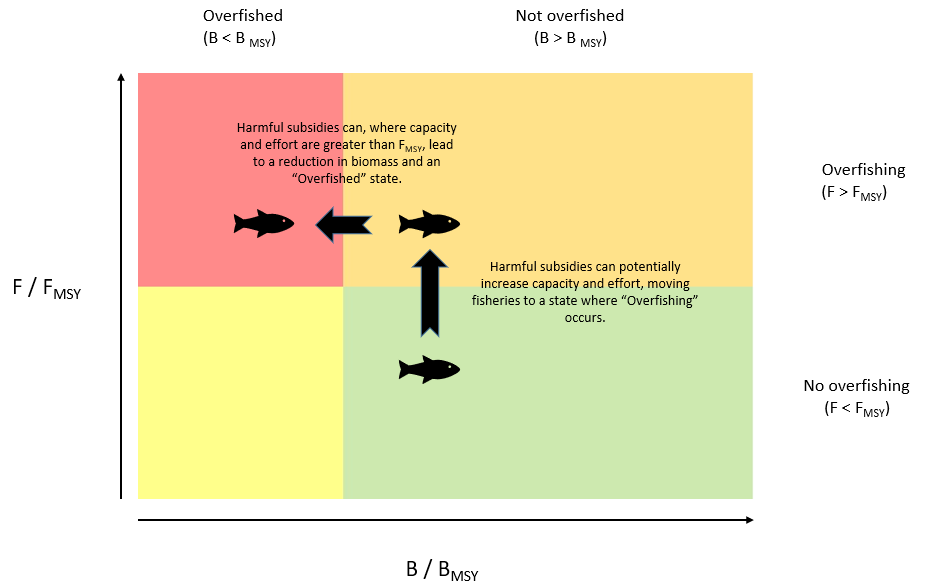In the Sustainable Development Goals adopted as targets for international development, SDG 14 requires world leaders to conserve and sustainably use the oceans, seas and marine resources for sustainable development. Within this goal, it is recognised that there is a need to address subsidies to fishing industries to avoid harmful impacts of subsidies. As a result, SDG 14.6 requires that, by 2020, certain forms of fisheries subsidies which contribute to overcapacity and overfishing are prohibited and that subsidies that contribute to illegal, unreported and unregulated (IUU) fishing are eliminated and that new subsidies of this kind are not introduced. However, the goal does recognise that appropriate and effective special and differential treatment for developing and least developed countries should be an integral part of the WTO fisheries subsidies negotiation. Subsidies that promote overfishing place fish stocks at risk and threaten the livelihoods and food security of millions of people. Already, almost two thirds of the world’s commercial fish stocks are either already fished at maximum levels or are overfished.
This project developed a working paper that explores the effects of harmful fishing subsidies.
What are the risks they pose to marine resources?
How can we estimate the level of harmful subsidies and identify those that need addressing as a priority? and
How can we measure and monitor progress towards their removal?
The working paper suggests that a starting point should be for policymakers to agree which subsidies are harmful, including those related to aquaculture and processing, which may promote harm less directly. This should be combined with a commitment to report on these using simple indicators to establish a baseline of their value. A key challenge to quantifying subsidies is to increase transparency – knowing what public funds are being given for, and to whom – thereby increasing accountability associated with subsidies programmes.
"The cost of hamrful subsidies" - https://pubs.iied.org/pdfs/16654IIED.pdf

